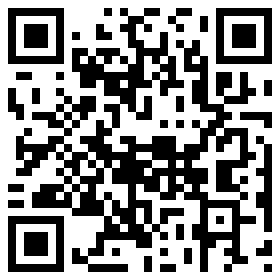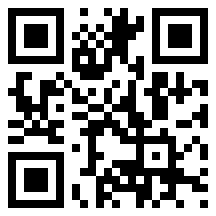The above has been an aside by way of introduction, but I have been thinking to document one aspect of online community steerage that consumes a lot of those keystrokes; i.e. making announcement on social media sites. Intelligent use of tagging, and exploiting scripts and connections between social media sites might help to attenuate the problem, but writing it out might help me to see where there is potential for that, or potentially of even more value, maybe someone will comment with a useful solution to the problem.
One problem is that the social media landscape changes so often. I became aware a couple of years ago that social media specialists and consultants were being hired by entities seeking to manage their social presence (not only in getting out the message but also the quality of their footprint) but it is only recently that the abundance of social spaces that people inhabit has got to the point, for me at any rate, where it is running up against that finite number of key presses you get in a given day. Those consultants must earn their pay, if only in compensation for carpal tunnel.
Let's take for example the next Learning2gether event which is coming up in a few days, and I need to get the word out. Learning2gether is organized through a wiki, which means that a community can contribute key strokes to entering the events, but in practice those keystrokes are mostly mine. So most of what you see at http://learning2gether.pbworks.com is my own input, though occasionally that of others (and much appreciated!).
So the events themselves are shaped at that wiki, and when it's time to announce them, I scoop out the text and copy it into a Notepad on my PC, from where I can fashion versions to be sent out to various social networking sites. If we are planning to use HoA (Hangout on Air) I then set up http://webheadsinaction.org/live with an announcement of the upcoming event. I use that page to keep our connection with the http://worldbridges.net/ and http://edtechtalk.com/ communities current.
One place I post it is here: http://fourc.ca/calendar/. Tyson Seburn has worked with Learning2gether in the past - on Monday, May 6, 2013, we helped him host TESL Toronto presents: Aga Palalas – mobile apps for language learning, http://learning2gether.net/2013/05/06/tesl-toronto-presents-aga-palalas-mobile-apps-for-language-learning/. His calendar is not the ultimate solution to the world's educators' pooling in one place a comprehensive listing of all online and f2f professional events of interest to them (such a feature would be a script that goes into the wild and harvests all such notices tagged with the tag it is looking for; spam could be prevented by people posting such notices registering with the script, as with Stephen Downes's gRSShopper: http://grsshopper.downes.ca/index.html) but http://fourc.ca/calendar/ is at least easy to use manually, and events posted end up on the calendar. I learned about it from Graham Stanley's posting here:
http://blog-efl.blogspot.ae/2014/01/tracking-conferences-and-connecting.html
Then I'll post to relevant Nings. I don't use Ning much any more (here's why: http://evomlit.wordpress.com/2011/07/11/thanks-pearson-and-ning-but-it-just-doesnt-work/) but if the event is related to a Ning that is worthwhile and is supported by an institution that will pay for it, I post to that one. For example I post all L2g events at the TESOL Arabia EdTech SIG page at http://taedtech.ning.com/.
Next I'll post an event on the relevant Google+ Community. This pushes it out to all subscribers at that community, and it can be shared (as an event) with one other community. I don't understand why just one, though it's possible to initiate the event elsewhere and share that with another community, thus getting your event out to 4, or to 6 or 8, but this cuts into our daily ration of keystrokes. I can understand the implications for flooding communities with events, but as a responsible user, I would prefer to make that decision (and let Google decide for all the irresponsible users :-). Ok, we've enjoyed my painting myself into a corner, and since I don't like to overdo the events, I simply copy and paste the descriptions of the event into "Share what's new" in a number of other Google+ Communities.
Here are some of my own communities:
- MultiMOOC - http://gplus.to/multimooc
- Learning2gether - http://gplus.to/learning2gether
- EdTech Mojo - http://gplus.to/edtechmojo
- Webheadsinaction - http://gplus.to/webheadsinaction
Again, some of my communities
- Multiliteracies - https://www.facebook.com/groups/evomlit/
- Learning2gether - https://www.facebook.com/groups/learning2gether/
- Webheads - https://www.facebook.com/groups/webheadsinaction/
- TESOL Arabia EdTech SIG - https://www.facebook.com/groups/TAEdTech/
Finally, I post to the Yahoo! Groups that have held their communities together for a long time and whose community members often support Learning2gether. The two that I maintain are:
- Webheads in Action - http://groups.yahoo.com/neo/groups/evonline2002_webheads/
- Multilit - http://groups.yahoo.com/neo/groups/multilit/
Personally I feel that Twitter is most effective nearer the time of the event so I don't usually post to Twitter until the event is nigh, though after the event I'll move its archive to http://learning2gether.net/ and erase it from http://learning2gether.pbworks.com/w/page/32206114/volunteersneeded. Once it's archived I'll Scoop.it here: http://www.scoop.it/t/learning2gether, and let that one send a tweet, or to FB if it was my presentation.


 Tag in your DEL.ICIO.US account
Tag in your DEL.ICIO.US account










